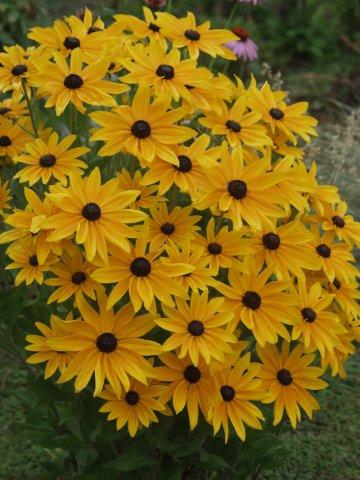Black-Eyed Susan

Scientific Name
Rudbeckia hirta
Geographical Considerations
Will this plant grow in my area?
View this image below in landscape mode highly recommended
Hardiness Zones
2a to 10b
This is a native Florida plant.
Yard Conditions
Will this plant grow in my yard?
Optimal Light
Black-Eyed Susan grows best in Full Sun.
Light Range
It performs in Partial Shade to Full Sun
Soil Texture
Any Texture
Soil Moisture
Well Drained
Soil pH
Slightly Acid to Slightly Alkaline (6.0-7.2)
Salt Tolerance
Low to None
DroughtTolerance
Medium
Wind Resistance
Not known
Toxicity
Not known
Nematode Tolerance
Not known
Appearance
What will it look like as it grows?
Plant Type
- Annuals
- Perennials
Plant Shape
- Clumping
Leaf Persistence
Black-Eyed Susan is Evergreen
Spread
1-2 feet
Height
2-3 feet
Growth Rate
Moderate
Leaf Size
Medium
Leaf Texture
Fine
Flower Size
Large
Flower Month
- June
- July
- August
- September
- October
Flower Color
- Yellow
Plant Role for Butterflies
Nectar
Additional Detail
Large, yellow-orange to reddish-orange, summer flowers; does not tolerate prolonged, wet weather. | Pests/Diseases: aphids, powdery mildew, rust, smut | attracts butterflies, birds


